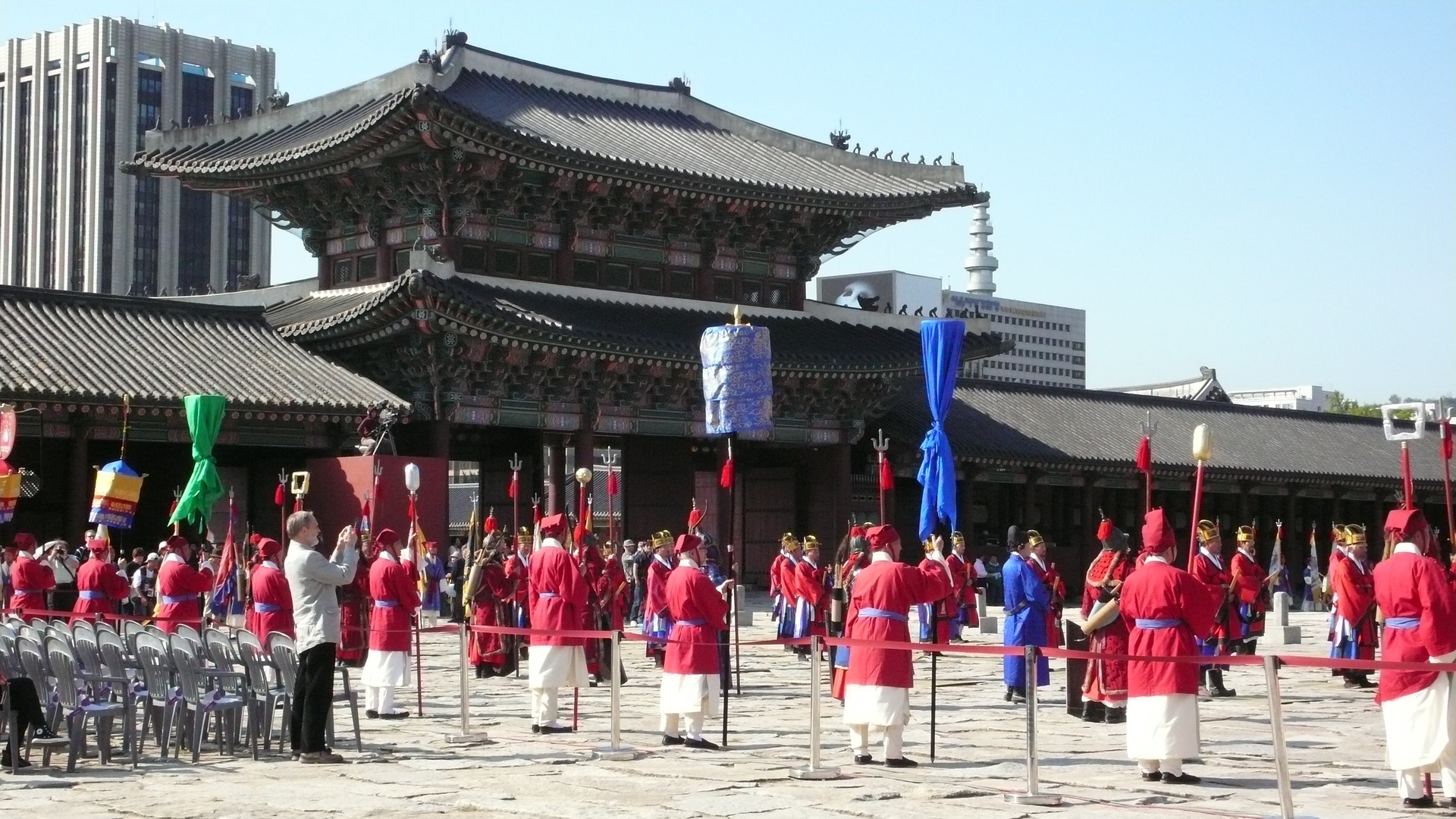Korean Social Norms (Part 1) Posted by Flying Oyster on Nov 23, 2020 in Culture, Vocabulary
Every country has their own social norms, and that certainly includes Korea. Korean culture is modernized, but many social norms are still based on 유교사상 (you-kyo-sah-sang: Confucianism), which emphasizes harmonious relations in social groups.
I have been wanting to talk about Korean social norms, but I didn’t want to misguide readers by over-generalizing some parts of Korean culture. After giving this much thought, I have selected several Korean social norms that you might come across at work.
- Your age will set your hierarchical rank in any social environment.
Most Koreans would like to set hierarchical ranks among social group members by certain measures, such as age. I believe this 경향 (kyung-hyang: tendency) is coming from Confucianism, which reinforces the importance of respecting elders. However, your job titles probably have more priority at work. If your 상사 (sang-sah: a superior) is younger than you, you might want to be careful how you talk to him/her, due to the use of 존댓말 (jon-dat-mahl: the honorific form of Korean). It depends upon your superior’s personality whether they are comfortable with you using 존댓말 or not, but I advise you to use 존댓말 at work anyway. You could talk to your 상사 without using 존댓말 at 사석 (sah-suk: in a private/unofficial).
2. Be ready to be asked personal questions.
Koreans might ask you many personal questions 초면에 (cho-myeon-eh: for the first time). Don’t be surprised when you are asked about your neighborhood, your age, your blood type, your job title, even your parents’ job. You never know what might come up. Some Koreans ask you these personal questions in a naive manner in order to get to know you. I believe most Koreans are trying to find commonality between the two of you to build a bond. It is understandable if you don’t want to answer these questions as long as you politely refuse.
3. Being a mind reader is an essential social tool in Korean society.
When you look up a dictionary, 눈치 (noon-chi) is defined as wits or a sense, which doesn’t really translate the word. My definition of 눈치 is a social ability or a social skill to read someone’s state of mind by observing someone’s non-verbal languages, such as body language or voice tone. Or 눈치 can be translated as a social cue to determine what is going on around you, especially when people don’t tell you what is really going on.
눈치 can be general behavioral guidelines for Koreans. Let’s say your daughter won the spelling bee competition and you want to 칼퇴근 (kahl-tea-gun: going home on time after work) to celebrate your daughter’s victory. However, there is a rumor that some people would be laid off soon. Your superior seems to be unhappy all day long and even he is unusually working late. Oddly, others are working late as well. In this case, you unwillingly decided to stay late at least until your boss goes home, because you don’t want your boss think that you are a sloppy worker. (I remind you that working late is not uncommon and leaving work on time is not often considered ideal in some Korean companies.) In this case, you practice 눈치 for the sake of your job security. In other words, 눈치is understood to be a type of social effort to avoid standing out among group members. 눈치 definitely requires a certain level of social EQ.
4. Look at the middle of the forehead.
When you talk to Koreans, especially if you talk to elders, avoid direct eye contact. In Western culture, people look at each other’s eyes while they talk. In Korea, you want to avoid this because some Koreans might think you are being confrontational if you directly look into their eyes while you talk. Some would advise you to look at the listener’s 미간 (mi-gahn: middle of the forehead), instead of eyes.
5. Be patient when you converse with Koreans.
You need to listen to almost everything until a Korean speaker finishes his sentences because the verb in Korean sentences is at the end. The other reason that you need to wait is that some Koreans might 돌려 말하다 (dol-rye-mahl-hah-dah: mince one’s words) when they are given simple yes or no questions. Some Koreans might not be comfortable immediately saying “No”. When they say no, they might think it is rude to forcefully say no or they might hurt your feelings. If you want clear communication with Koreans, don’t cut off someone because the real meaning can be waiting for you with the final word.
What did you think about Korean Social norms? I will discuss more Korean social norms in part 2. Stay tuned!

Build vocabulary, practice pronunciation, and more with Transparent Language Online. Available anytime, anywhere, on any device.







Comments:
Frank Rand:
are koreans still stuck on this age thing
FlyHighOyster:
@Frank Rand Hi Frank!
Sorry for the delayed response. It is hard to say that all Koreans still strict about age. It depends on your surroundings and interpersonal culture. Some of my friends who live in Korea would agree with this, but others might not. However, I personally think age is one of main considering factors in social life.
Thank you!